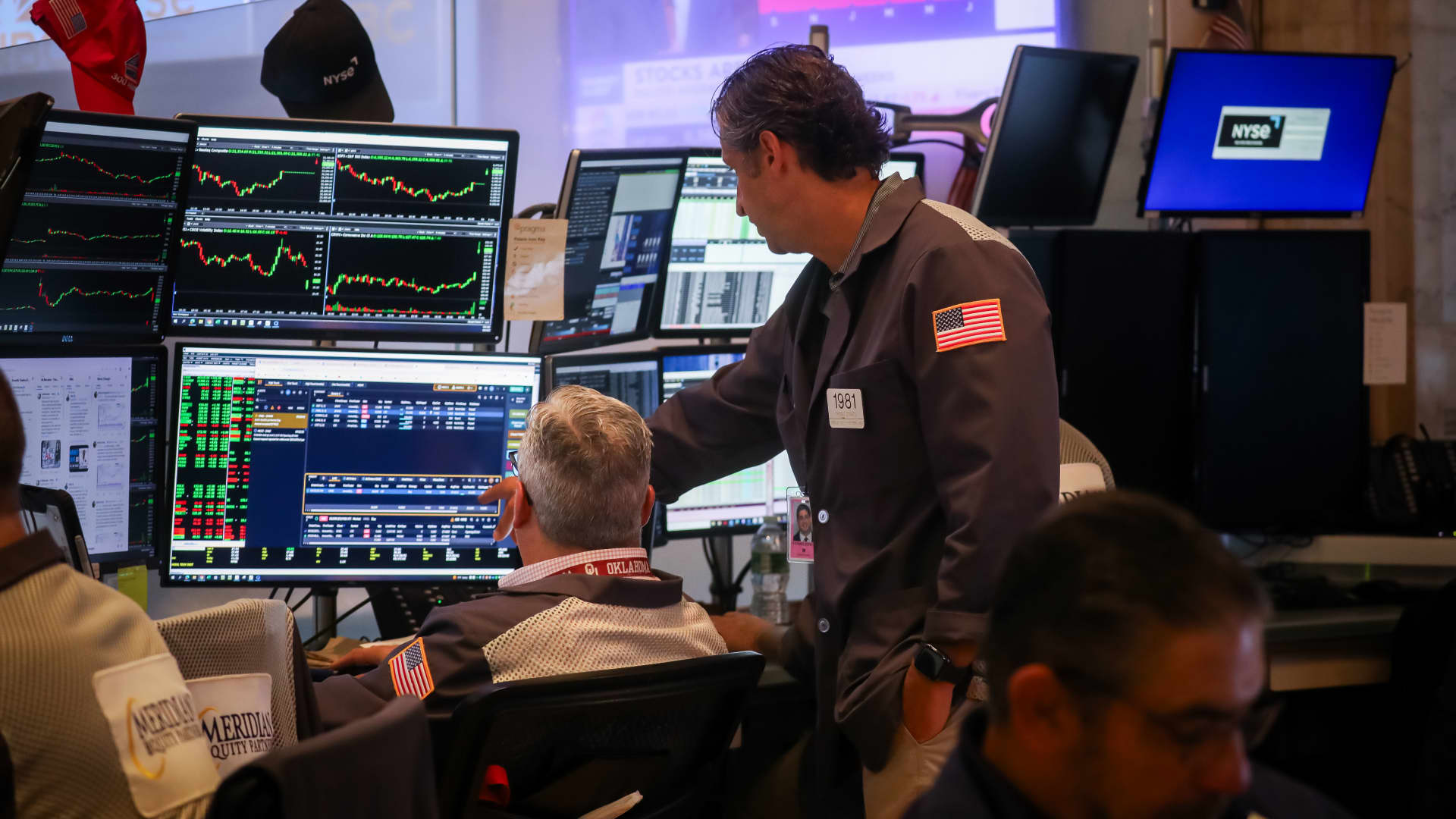Traders work on the floor at the New York Stock Exchange (NYSE) in New York, US, on Friday, Aug. 8, 2025.
Michael Nagle | Bloomberg | Getty Images
Stocks rose on Friday, led by the tech sector, as the major averages ended the week with solid gains.
The Nasdaq Composite jumped 0.98% for a record close of 21,450.02. The tech-heavy index hit a fresh all-time intraday high earlier in the day. The S&P 500 added 0.78% and ended at 6,389.45, a hair’s breadth shy of a record close. The Dow Jones Industrial Average climbed 206.97 points, or 0.47%, closing at 44,175.61.
The major averages posted a winning week, with the 30-stock Dow jumping about 1.4% and the broad market S&P 500 up 2.4% in the period. The Nasdaq posted a 3.9% climb on the week.
Apple lifted both the S&P 500’s tech sector and the Nasdaq. The iPhone maker surged 13% this week after announcing plans to spend about $600 billion over four years in the U.S. in a bid to appease President Donald Trump. The stock notched its best week since July 2020.
Apple shares over the past week
Apple’s latest surge kicked into high gear as Trump announced earlier this week that he would impose a 100% tariff on imported semiconductors and chips, with an exemption for companies that are “building in the United States.” Shares advanced another 4.2% Friday.
Trump’s trade policies
Investors not only appeared to interpret the semiconductor tariff as being less harsh than anticipated, they also seemed to look past Trump’s “reciprocal” tariffs, which took effect at midnight on Thursday. Some of the steepest duties include Syria’s 41% and Laos’ and Myanmar’s 40% rate.
Trump warned U.S. courts Friday against striking down his tariff policy, writing in a Truth Social post that if the courts were to do that, “It would be 1929 all over again, a GREAT DEPRESSION.” He also said that the duties have been having a “huge positive impact” on the market. Stocks nosedived in the wake of Trump’s sweeping tariff announcement back in April, with the S&P 500 falling into correction territory after seeing its biggest single-day loss since 2020.
“The market’s reaction to the April 2 announcement kind of shows how markets feel about tariffs,” Ross Mayfield, Baird investment strategist, said. “Investors are largely anticipating the administration not following through on hyper aggressive tariff plans, so it’s kind of like chicken-and-egg, and I think we’re still kind of in the later stages of figuring that out.”
“If markets anticipate that but don’t react because they’re waiting for the capitulation, the administration could possibly take it that the market is enforcing the policy rather than anticipating a change, so it is kind of a tricky dynamic,” he continued.
